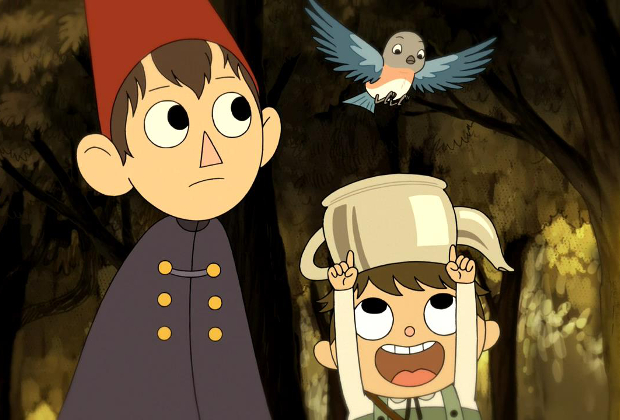Over the Garden Wall: Why It Earned the Emmy
Mia Daniele ’19 / Emertainment Monthly Staff Writer
A little under a year ago, a whimsical show aired its premiere and finale episode within the confines of one mid-autumn week. Despite its short runtime, over the past year it has gathered a strong cult-like following while receiving high critical acclaim. This show is Cartoon Network’s Over the Garden Wall, and last Saturday (September 12), it won the Creative Arts Primetime Emmy for Outstanding Animated Program.
The win in itself is impressive. Nominated alongside the cartoon was The Simpsons (which won ten of its twenty-four nominations), South Park (a five-time winner), Archer (nominated twice), and Bob’s Burgers (nominated four times). All of these shows hold certain aspects in common: they are long running series, they have all been previously nominated, and they are all exclusively for adults. All of these are well-known in every American household while Over the Garden Wall still contains a very quiet fan following. How, then, did a show made for children win one of the most prestigious primetime television awards?
The answer? It’s wholly self-sustained and wholly unique.

But as anyone who has watched the series knows, it’s not necessarily for young audiences. While the story is simple enough for kids to comprehend—two brothers Wirt (Elijah Wood) and Greg (Collin Dean) find themselves lost in the woods and must find their way home—many of the themes appeal more to adults.
In essence, that is what makes Over the Garden Wall so worthy of this year’s Emmy. It is the perfect blend of a child’s tale and an adult’s existential crisis. Many of its episode-to-episode morals are common enough to be found in any fairytale, but the overarching story requires analytical thinking to fully comprehend.

Internet film critic Doug Walker described the sensation of watching Over the Garden Wall the best: “You remember when you’re like three years old and you watch a movie, or even a cartoon show. It’s little above your age and you’re at that point where you can’t quite comprehend what is going on. But you’re kind of hypnotized by it, and you’re watching it and you assume, ‘at some point, I’m going to understand this.’”
And that is what makes Over the Garden Wall so significant. It has never been done before, and it will probably never be fully replicated again. The creation of the show was in itself risky for the network, but its results are more than telling of the growing demand for family-friendly animation. It treads that thin line between adult and child and gives an emotional tale that is sure to be watched again and beloved by generations to come.

Yet with that increase of intelligence, children’s media remains, at heart, a collection of stories made for kids. At the same time, older audiences are flocking more and more to these spectacles and giving them the just credit they deserve. Next year, The Simpsons may win another Emmy for its collection, but one can only hope that Over the Garden Wall will set the precedent for cartoons to come.